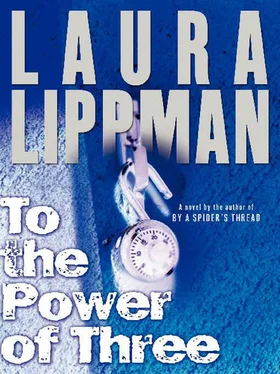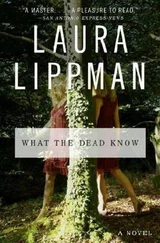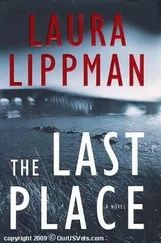If Perri Kahn had shot, say, Thalia Cooper, then Alexa might have understood. Thalia was the stereotype, the mean girl who hid her cruelty beneath her bland, blond good looks, sending the pinch-faced Beverly Wilson to do her handiwork. If a boy was heard to remark approvingly on any facet of a girl that Thalia did not deem respectable, then Thalia tried to destroy that girl. That had been the whole motive behind her attempt to humiliate Eve Muhly. Eve had been getting too much attention for her ridiculously lovely body, a scale model of voluptuousness, not that Eve had a clue what to do with it. Of course, now that Eve hung with the skeezer girls, she dressed in such baggy clothes that one could say Thalia had won, after a fashion. No, if someone had shot Thalia, it would have made perfect sense.
But Kat Hartigan was almost as nice as everyone said she was. As a new arrival to Glendale, Alexa wasn’t quite so inclined to be gaga over Kat. And as a guidance counselor with unrestricted access to student records, she knew that Kat’s admission to Stanford had rested heavily on the status of her father’s girlfriend, an alum who’d gone to bat for her big-time, recruiting other area alums to write her letters of reference. Her grades were impressive, straight A’s across the board, but her SATs were average by Glendale standards. Kat simply could not crack 1400 despite the money her father lavished on coaches and tutoring programs, making Stanford a reach for her. Strangely, reading comprehension was her downfall. She soared through the vocabulary on verbal only to hit a mental block when asked to interpret words in context. But Kat-well, Kat’s father-was nothing if not sly about the process. By the time the girl applied for early admission, she had found multiple ways to sweeten her application and compensate for her board scores.
For all this-the money, the connections, the doting father, the grandfather who had helped to build the town where all her friends lived-Kat was genuinely sweet-tempered. A little dull, perhaps, because of the very earnestness that made her so nice, a perfectionist who panicked at the smallest error. Sometimes she was almost too solicitous of others’ feelings, as if her parents’ divorce had left her with a profound fear of even mildly disagreeable discussions. She was a nodder par excellence, someone who gave her wholehearted approval to the tiniest projects and pronouncements, to the point where she risked being patronizing. Yet Kat was nothing if not achingly sincere. While Thalia and Beverly stalked the halls of Glendale, looking for new victims to terrorize, Kat had reigned from a base of niceness.
At a standoff with the Pergo, Alexa decided to take a break, pour herself some iced tea-homemade, with mint leaves, which still grew wild in a corner of her barely cultivated yard-and carried the glass to her back steps, along with her cordless phone.
She eyed the phone, trying to think of someone to call. She had checked in with her mother Friday night, of course, and the conversation had been almost as gratifying as it should be, her mother properly awed and frightened by her daughter’s brush with danger. Alexa had hung up with a rare feeling of satisfaction. Stories that one looked forward to telling so often fell flat. Yet this one became better with each telling, even as she called her best friend from graduate school, then took a call from an old high-school classmate who had heard the news all the way in San Diego.
But she had not called her older brother, assuming he would call her. Given their age difference, he had always been protective of her, especially after their father “decamped.” That was her mother’s preferred term, for it was at once literal and cruel, a reference to the fact that Mitchell Cunningham’s last act had been to pack the family’s camping gear in the trunk of his station wagon. He had been trying to find a place to fit the grill when his wife and daughter returned from church. Oona Cunningham told this story on herself to this day, as if being blunt about her own fate could keep anyone else from hurting her. But she had been better when Evan was home, before he went away to college. The ensuing eight years that Alexa spent with her mother felt forlorn and temporary-too much takeout, too many meals eaten in front of the television. It was as if a woman and a girl, living alone in a house where a father and a son used to be, did not count for anything.
She dialed her brother’s cell, knowing better than to expect him to stay home on such a beautiful day. While Alexa sought relief in domesticity, Evan needed endless distractions. But then, his New York apartment was small and depressing. No one would elect to spend time there. Alexa had offered to give it a perk-up-make curtains, show him how a few pieces from Target and Pier 1 could tie it all together-but Evan hadn’t been interested.
“Alexa!” He was breathless. He was always breathless, always in a rush.
“Hey, Evan. Is this a bad time?”
“Heading uptown to a softball game. What’s up?”
“Oh, I’ve been running around a lot and just wanted to make sure you hadn’t tried to call me this weekend.”
“No. Should I? Was there something with Mom?”
“Nothing important. But I thought you might get a little unnerved, my school being all over the news.”
“Your school? Christ, was that your school? Oh, my God, Alexa, I didn’t put it together. I mean, yes, Maryland, but when it wasn’t Bethesda-Chevy Chase and when it wasn’t Baltimore…I always think of you as being in Baltimore .”
“I am in Baltimore,” she said lightly, letting him off the hook. “It’s the school that’s in the suburbs.”
“Did you see anything? Were you there?”
“I was in the office when the call came in, saying there were shots. And I’m going to coordinate the grief-counseling effort.”
Evan started to laugh, then caught himself. “I’m sorry, Alexa, it’s just that-I don’t know, I’ve never understood the need to qualify counseling with the information that it’s about grief, you know? It’s not like there’s a lot of joy counseling.”
She could have reprimanded him for his insensitivity or pointed out that there were, in fact, other types of counseling. Job counseling for one, as Evan should know, having changed careers three times so far. He currently worked as a graphic designer in downtown Manhattan, a job he had managed to hold for a personal best of four years, even after his firm cut back positions in the wake of 9/11. The day the towers fell, Alexa and her mother had tried frantically to call him, encountering overloaded cellular systems and no answer on his landline. Turned out he had slept through it all. Stranger still, he had not really known anyone among the dead, not intimately. “I haven’t lived in the city that long,” he said, unconcerned about his lack of connection, but that detail had bothered Alexa. She worried that Evan was more like their father than he knew, simply skipping the wife-and-family part and going straight to a selfish, solitary existence.
“I’ll let you go,” she said, keen to say it first. “I’m laying a new floor.”
“Is that all you’re laying these days? What’s wrong with Baltimore men?”
“Evan!”
“I’m serious. I’ve been to Baltimore. You raise the city’s aesthetic standards by several percentage points.”
“Bye!”
She dawdled on her back steps, less than eager to go in and confront her crossways pieces of Pergo. When she did return, she found that something-the tea, her brother’s heartening belief that her solitary state said more about her surroundings than it did about her-had soothed her, and the task fell into place. By day’s end her living room had a maple-hued floor. And only the most eagle-eyed spoilsport could identify it as anything other than the wood it pretended to be, much less find the spot where she had to cheat it, just a bit.
Читать дальше












